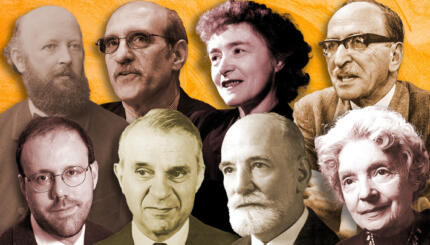Practically the entire world condemned Israel after the Yom Kippur War. The United States put tremendous pressure on Israel to come to a settlement with Egypt over the Sinai, with Jordan over the West Bank, and with Syria over the Golan. Israel refused to talk with any representatives of the [Palestine Liberation Organization]. Jordan and Syria refused to talk until Israel returned the Golan Heights and the West Bank.
Henry Kissinger [then US secretary of state] spent much of 1974 traveling between Israel and Egypt, speaking with each side separately because Egypt refused to be in the same room with Israel’s representatives. This procedure, called “shuttle diplomacy,” succeeded in establishing cease‑fire lines in the Sinai.
Israel agreed to withdraw east of the important mountain passes of Mitla and Gidi provided that detection equipment could be placed to note any Egyptian troop movement which would indicate a breaking of the cease‑fire agreement. However, it was clear to everyone that both sides were deeply entrenched in their policy positions, and there was little room for further compromise or negotiation.
Menachem Begin immediately invited him, and Sadat arrived on November 19. In addressing the Knesset, Sadat acknowledged Israel was “an existing fact,” thus giving formal recognition to Israel. As a result of the negotiations between Sadat and Begin, Israel agreed to evacuate the Sinai on condition that Egyptian troops would not cross the Mitla and Gidi Passes. Face‑to‑face negotiations had begun.When the right‑wing Likud party won the elections in Israel in 1977, the United States feared that even these peace negotiations would grind to a halt. To the world’s shock, on September 10, 1977, Anwar Sadat, president of Egypt, announced his willingness to visit Israel. It was the first time an Arab leader had shown readiness to recognize Israel.

Help us keep Jewish knowledge accessible to millions of people around the world.
Your donation to My Jewish Learning fuels endless journeys of Jewish discovery. With your help, My Jewish Learning can continue to provide nonstop opportunities for learning, connection and growth.
With the support, encouragement, and “nudging” of President Carter, the two sides slowly worked out the wording of a complex agreement which included Israel’s evacuation of the Sinai and a framework for conducting negotiations for establishing autonomy for Gaza and “Judea/Samaria” (the West Bank). This agreement, signed in September 1978, was called the Camp David Accord [named for the US presidential retreat at which the agreement was brokered]. It was followed by months of negotiations as the two nations struggled to write a mutually acceptable peace treaty. Concerning the issue of the Palestinians, the treaty remained purposely vague so each side could interpret it in the way it wanted.
The treaty concentrated on the specifics of Israel’s withdrawal from the Sinai. When Egypt insisted that the treaty include defined steps for the autonomy of the West Bank, Israel refused, and the talks appeared to be stalemated again. Cyrus Vance flew back and forth between Egypt and Israel trying to break the deadlock. President Carter also flew to Cairo and Jerusalem. Many people suspect that these negotiations involved some secret treaty provisions still not disclosed. Finally, on March 26, 1979, Israel and Egypt signed a peace treaty.
As a result of all these negotiations, in 1979, Menachem Begin and Anwar Sadat received the Nobel Peace Prize.
The peace treaty between Egypt and Israel had tremendous ramifications for the two countries. Although Egypt got back the Sinai with its rich oil fields, she was ostracized for almost a decade by the other Arab nations as a traitor. Anwar Sadat was assassinated on October 6, 1981, by Muslim fundamentalists. His successor, Hosni Mubarak, vowed to keep the peace treaty.
Israel lost its prime source of oil and had to return to a boundary that was less secure. Most significant, Israeli settlers had created a community in northern Sinai on the Mediterranean, Yamit. One of the terms of the peace treaty was Israel’s returning that land to Egypt. Riots broke out as the settlers refused to leave, and the Israeli army had to be called in to force the evacuation. Yamit was totally bulldozed, leaving Egypt with desert sand, but tremendous bitterness was created among the settlers, who felt that they had been betrayed. The return of Yamit to Egypt provided Israel’s right‑wing groups with a rallying point.
Reprinted with permission from Jewishgates.org
Yom Kippur
Pronounced: yohm KIPP-er, also yohm kee-PORE, Origin: Hebrew, The Day of Atonement, the holiest day on the Jewish calendar and, with Rosh Hashanah, one of the High Holidays.

Help us keep Jewish knowledge accessible to millions of people around the world.
Your donation to My Jewish Learning fuels endless journeys of Jewish discovery. With your help, My Jewish Learning can continue to provide nonstop opportunities for learning, connection and growth.



